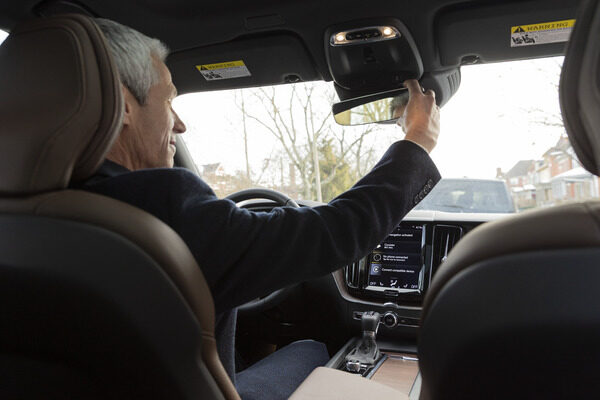
Most drivers have seen it before – a car pulled over on the side of the road with steam or smoke pouring from beneath the hood, the owner looking on nervously. An overheating car isn’t a pretty sight, but what should you do if it happens to you? And what can you do to ensure it doesn’t happen in the first place? We’ll answer both questions and more in this article.
What causes a car to overheat?
Before we get into how overheating can be responded to and prevented, let’s talk about how it actually happens. Your car is designed to resist overheating, so if it has begun to get too hot, that’s often an indication that something is amiss. Here are a few common causes as to why your car may be running hot:
Coolant
Every modern car is made with a coolant system that helps keep internal temperatures from climbing too high. Leaks, blockages or pump malfunctions in this system can all result in your engine overheating.
Car thermostat
The coolant in your engine is regulated by your car’s temperature gauge, which determines how much is necessary to maintain an appropriate temperature. If anything is wrong with this system, it could be misreading the proper amount of coolant to provide.
Low motor oil
Most drivers know oil plays a crucial role in lubricating a car’s moving parts, but it also removes excess heat from the engine. Accordingly, low oil levels can correspond with high engine temperatures.
Radiator cooling fan
As the name suggests, your radiator fan works to cool your car’s internal temperatures. If it stops running, or even runs at improper levels, that can be enough to cause your car to overheat.
If you’re unsure what’s causing your car to overheat, it’s always a good idea to find a reliable mechanic who can diagnose and service your car, and get protection in case your car overheats while you’re on the road.
What happens when a car overheats?
Fortunately, most cars will not overheat without letting you know. There are several noticeable signs:
- Steam or smoke coming from beneath your car’s hood
- A burning or sweet odor coming from your car engine
- The needle on your temperature gauge pointing toward the red, or “H”, depending on the design of your car
If you notice any of these signs, don’t wait to see if they get worse! Pull over right away and turn your car off to give it a chance to cool down.
What to do when your car overheats
If your car begins to overheat, it’s important to act fast. Running on high heat for too long can cause serious damage and potentially put you and your passengers at risk. Follow these steps at the first sign of overheating:
- Pull over at the first safe location, put your car in park, and turn off your engine. You’ll want to wait at least 10 minutes to give your car a chance to cool off.
- Pop your hood and leave it open to allow the hot air to dissipate faster.
- After you’ve given your car a chance to cool, turn your power back on by rotating your key to its first position in the ignition. This will allow you to check your temperature gauge and see if it has dropped to a safe level without actually turning your engine back on. If your gauge reads a safe temperature and your fluid levels are normal, try starting your engine.
At first sign of anything unusual like strange sounds, or a failure to start at all, stay put, leave your engine off, and call roadside assistance.
How to keep your car from overheating
Overheating poses a risk to both you and your car, so it’s best to avoid that situation in the first place. From preventative maintenance to tricks you can use in a pinch, there are many ways to help your car stay cool. Here are some of the easiest ways to do it:
- Check your temperature gauge – You’ve probably looked at your car’s temperature gauge countless times without taking much notice, but it’s there for a reason! If you ever see the needle point towards the red portion of the dial, that’s a sure sign it’s time to pull over and give your engine a chance to cool off.
- Turn on the heat – You read that right, turning on the heat really can help cool off your engine in a pinch. Doing this pulls hot air out of your engine compartment, ultimately cooling your engine. It’s not an ideal solution for you or your passengers, but worth keeping in mind for long drives on hot days.
- Add engine coolant – Coolant is the fluid that helps keep your engine from overheating, located in the coolant reservoir under your car’s hood. If temperatures are rising, it’s always a good idea to check your coolant level, indicated by lines on the side of the reservoir. If you’re low, you can add extra coolant yourself, although you should always be careful not to do so if your engine is hot.
- Have a mechanic flush your radiator – Just like oil, coolant becomes dirty over time and needs replacing. A mechanic can do this for you in a procedure called a radiator flush, where the old coolant is drained, the radiator is flushed with a cleaning fluid, and new coolant is added. Check your owner’s manual for specifics on how often your vehicle needs this done.
- Consider replacing your car’s battery – The less power there is in your battery, the harder your car has to work, putting it at risk of overheating. This may begin to occur if your battery is older than 3 years. Your mechanic can advise you on whether your battery is ready to be replaced. Find out when to change your car battery.
- Check the drive belt – Coolant circulates within your car’s engine thanks in part to the drive belt. If your drive belt isn’t functioning properly, there’s a good chance your engine could overheat.
- Check the brakes – Ever heard of sticking brakes? Brakes might not be the first place you’d think to look if your engine overheats, but stuck brake calipers can create enough extra drag on your engine to eventually generate a lot of heat. If your mechanic can’t find anything wrong with your engine itself, ask them to take a look at your brakes.
- Add engine oil – Coolant doesn’t turn down the temperature all on its own! Engine oil is also responsible for removing excess heat, so if your oil levels dip, your engine temperature may rise enough to cause overheating.
- Check the vehicle’s thermostat – Your engine regulates its temperature using an internal thermostat, a valve that controls the flow of coolant. If the thermostat malfunctions, insufficient coolant in your engine can cause overheating.
- Get professional maintenance regularly – Many of the issues we’ve just covered can be caught early and prevented by routine maintenance. Have a professional mechanic service your vehicle annually and overheating will be far less likely.
Disclaimer:
The information included here is designed for informational purposes only. It is not legal, tax, financial or any other sort of advice, nor is it a substitute for such advice. The information may not apply to your specific situation. We have tried to make sure the information is accurate, but it could be outdated or even inaccurate in parts. It is the reader’s responsibility to comply with any applicable local, state or federal regulations. Nationwide Mutual Insurance Company, its affiliates and their employees make no warranties about the information nor guarantee of results, and they assume no liability in connection with the information provided. Nationwide and the Nationwide N and Eagle are service marks of Nationwide Mutual Insurance Company. © 2023 Nationwide



